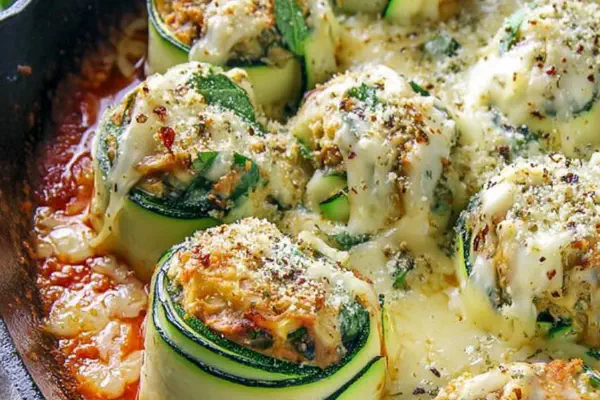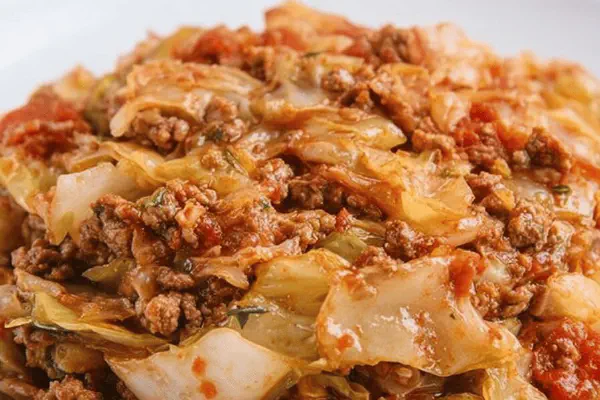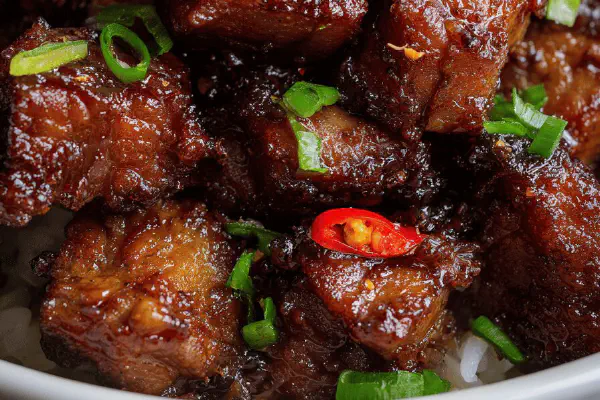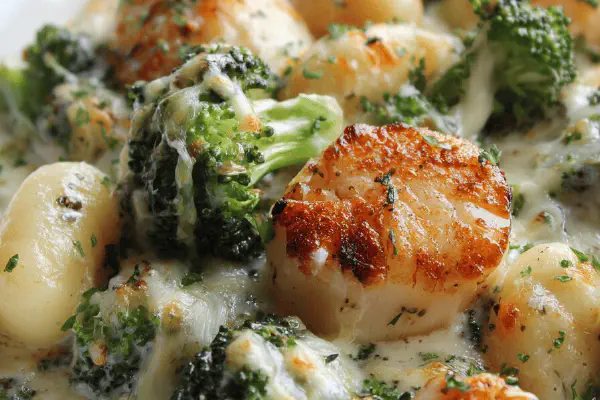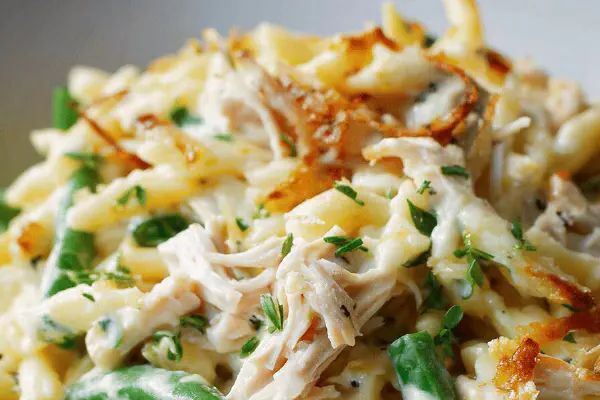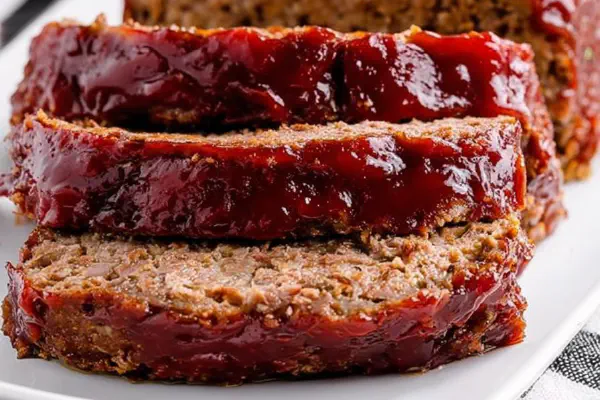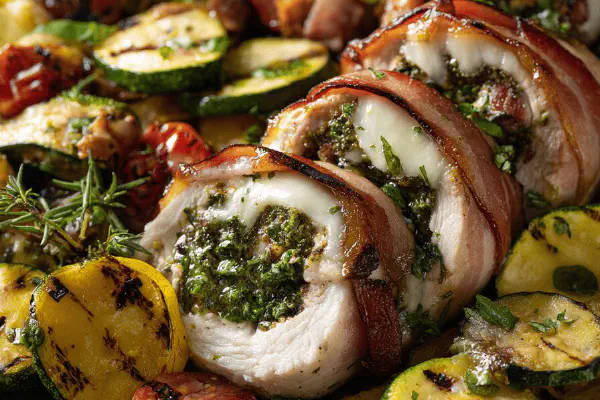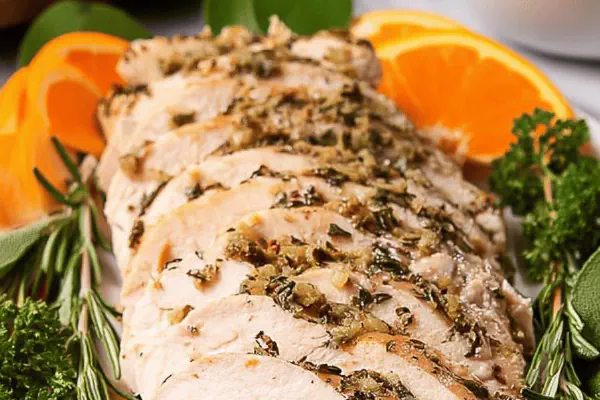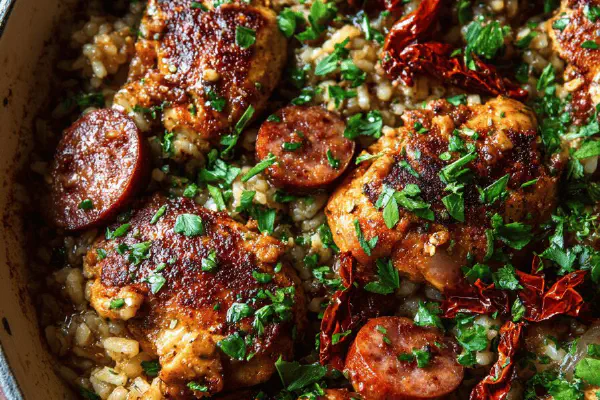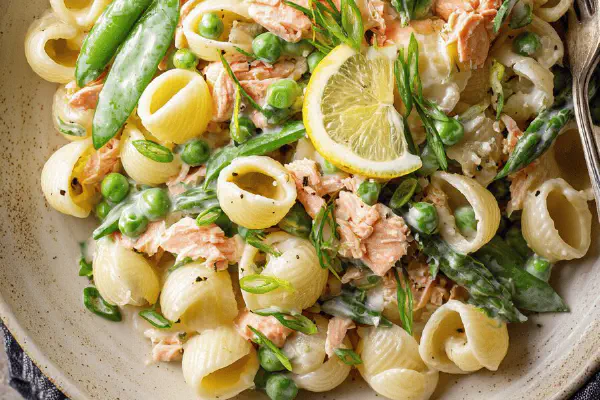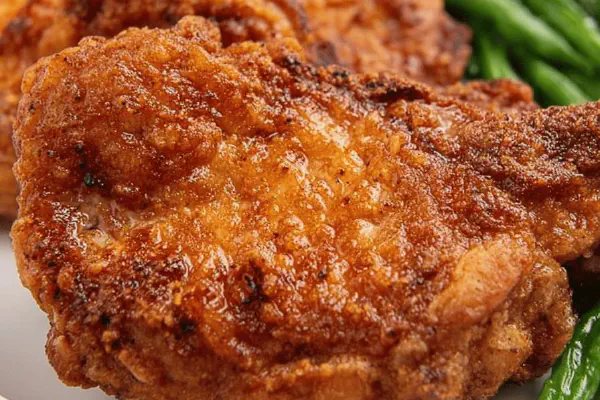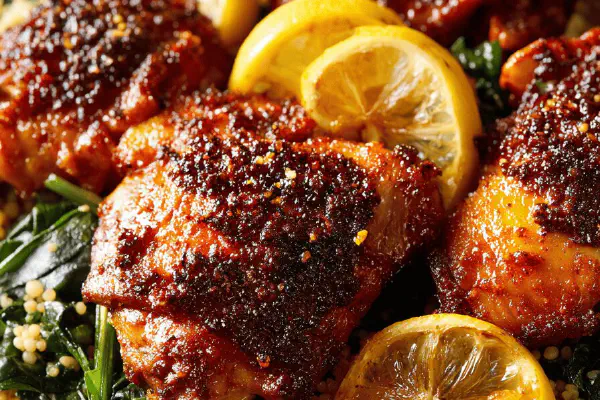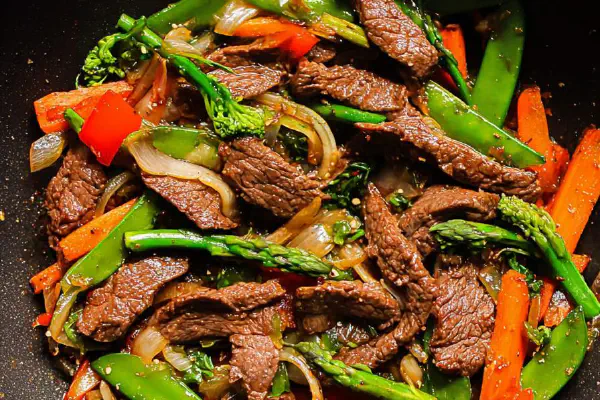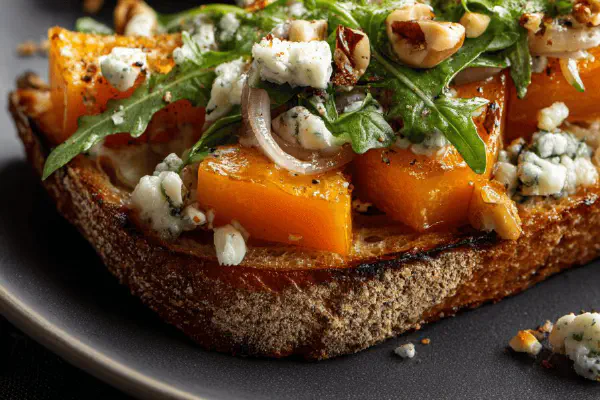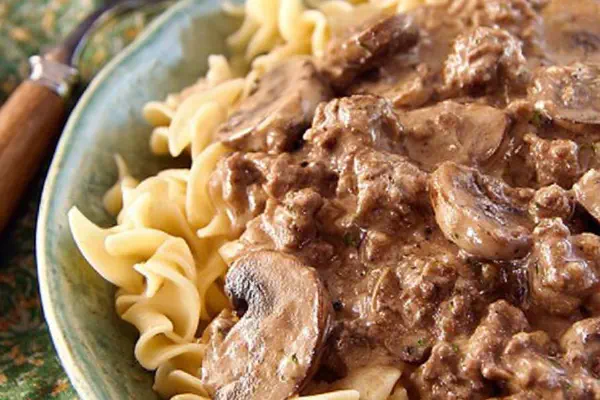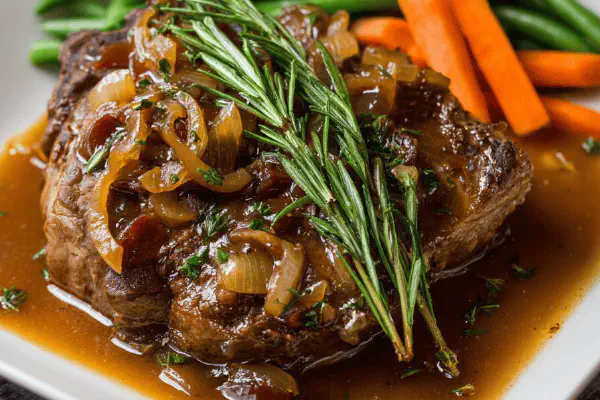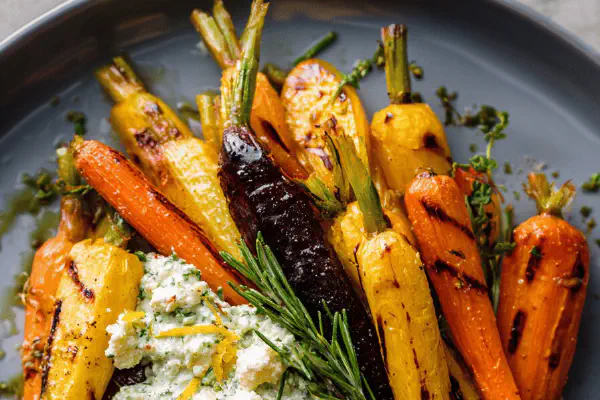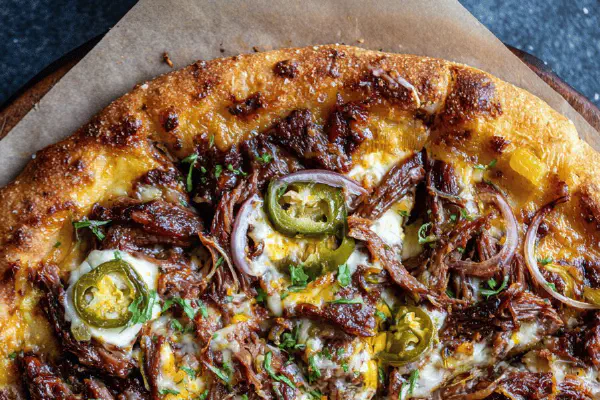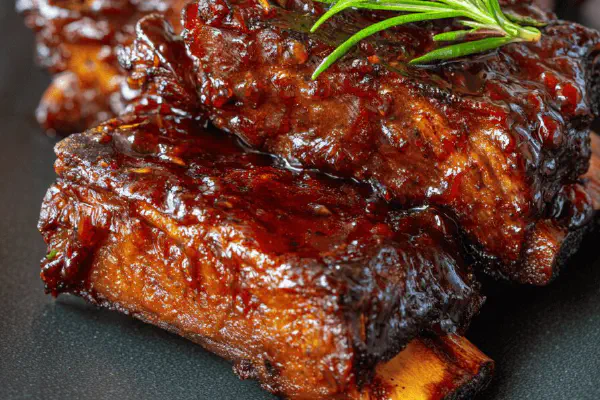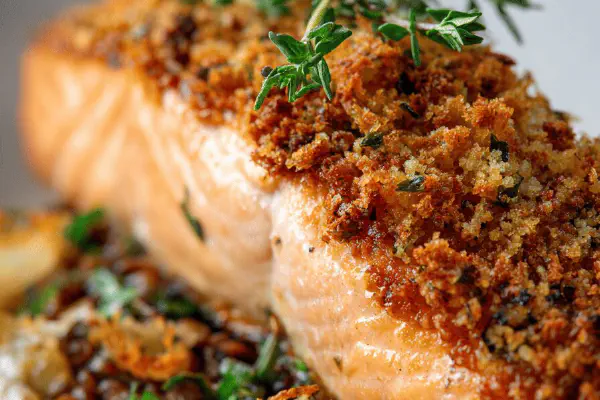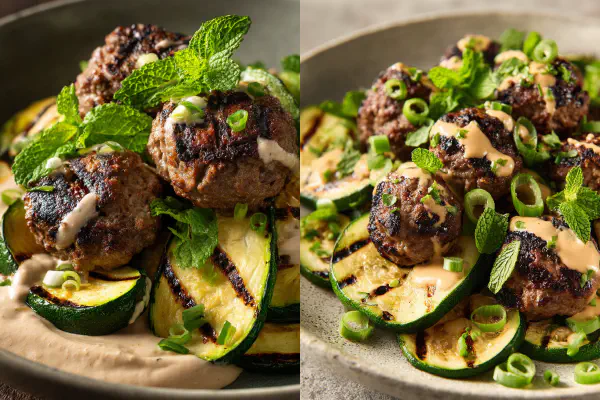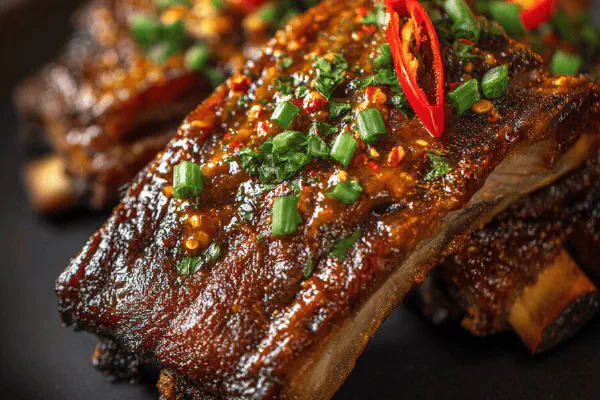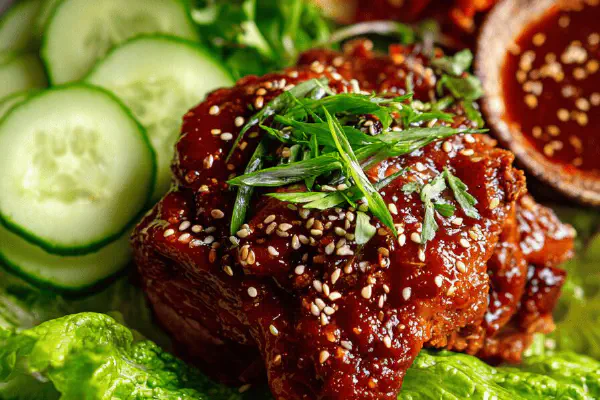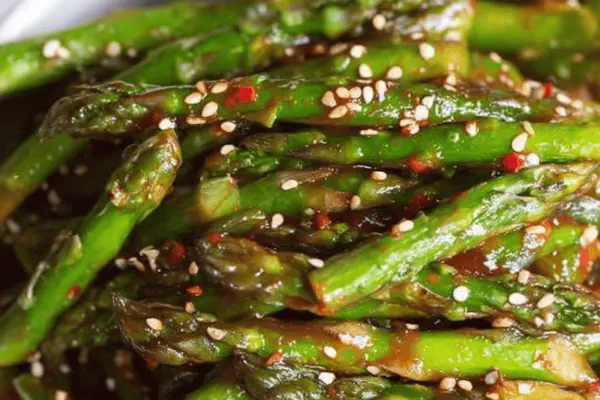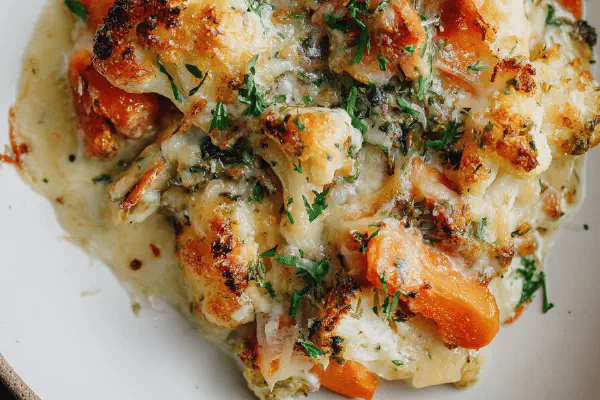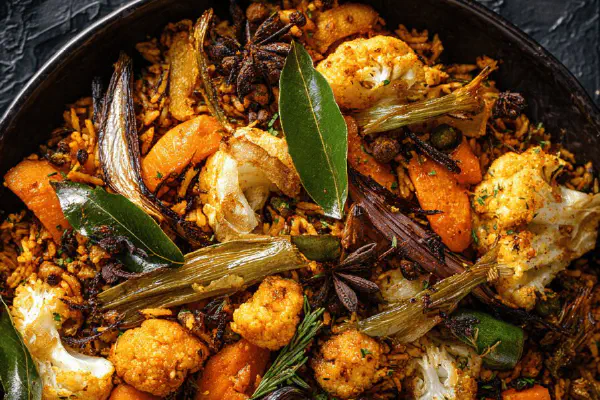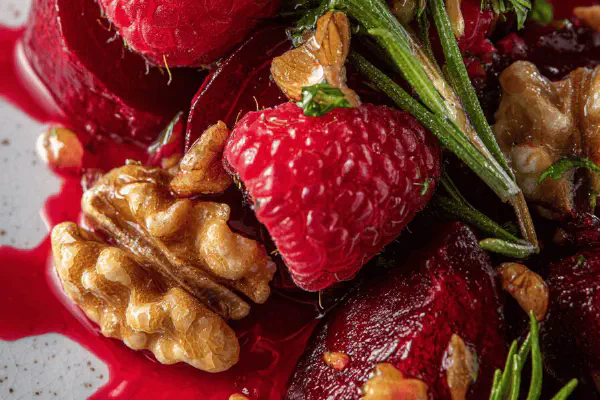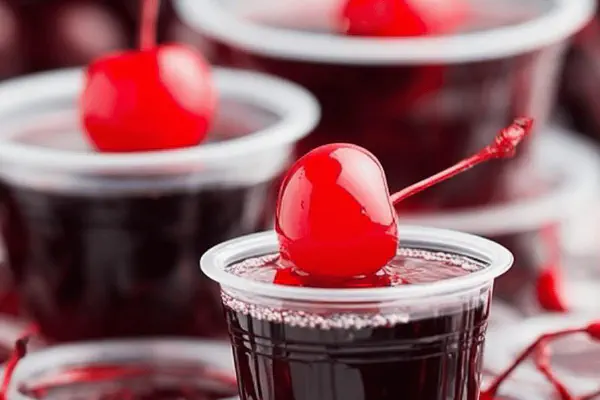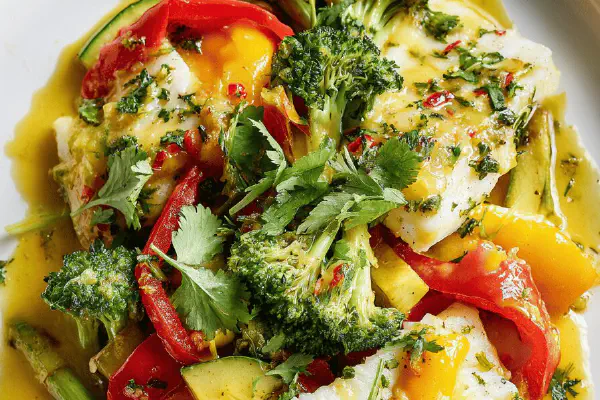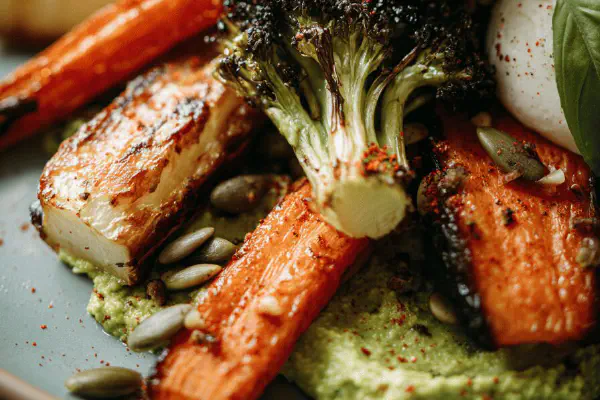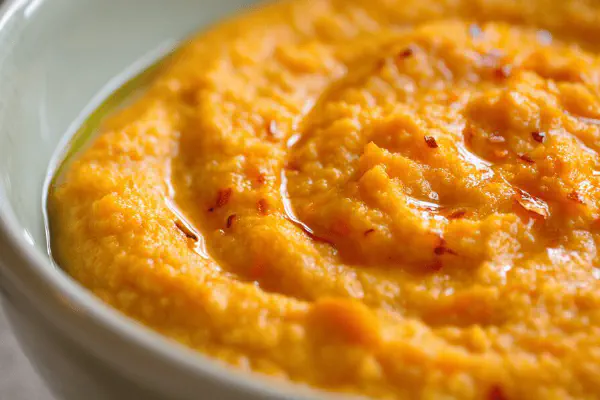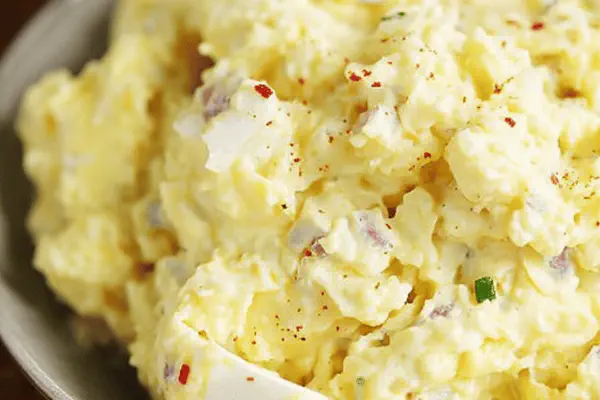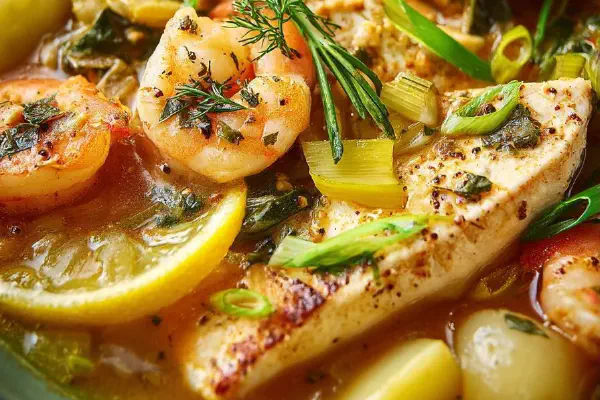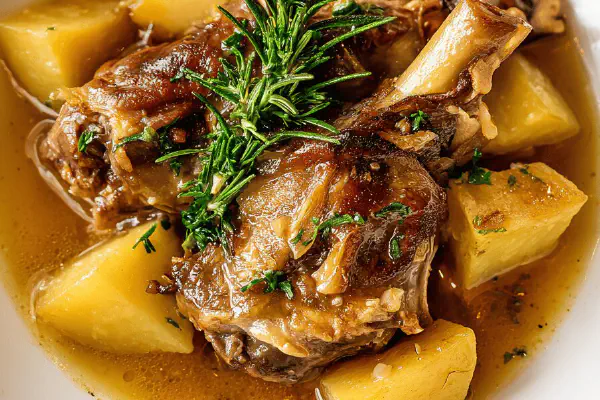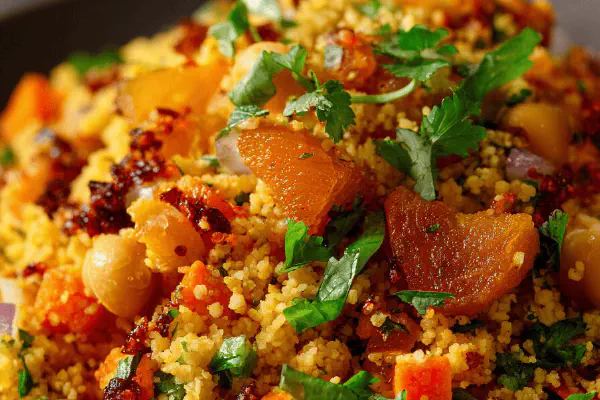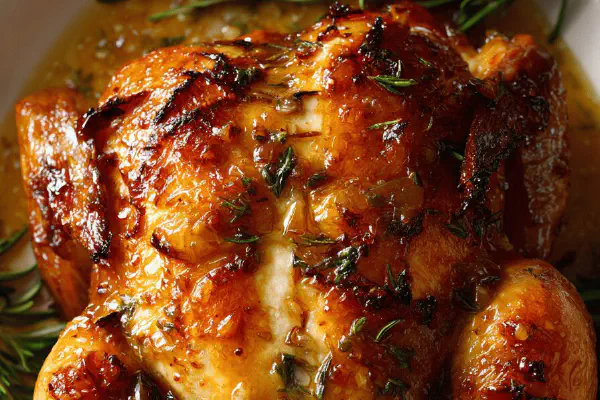
Featured Recipe
Rabbit Lemon Parmesan
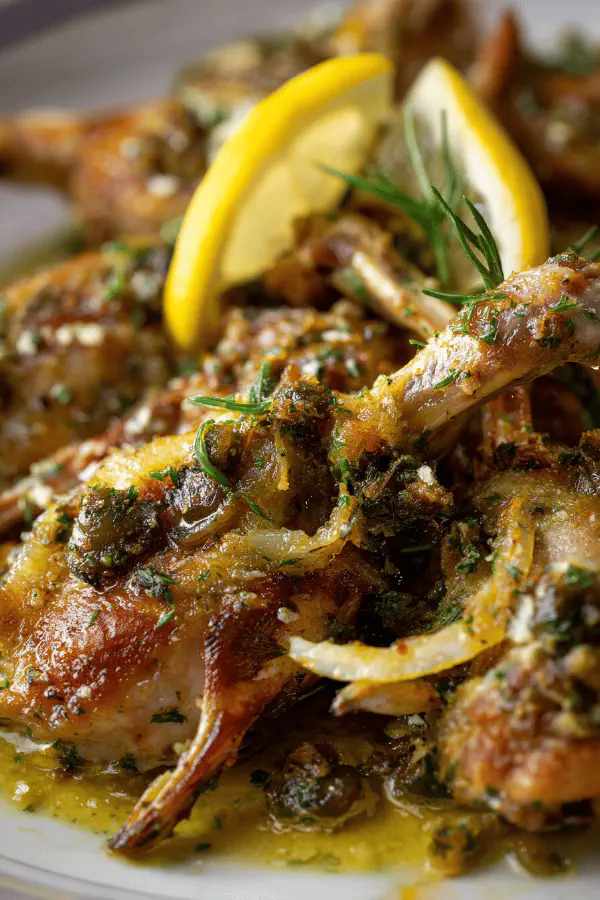
By Kate
"
Rabbit cooked slowly with lemon juice, chicken broth, and aged parmesan rind. Garlic and shallots start the base. Capers add pop. Reduced sauce thickened with time, finished off with fresh lemon zest and chives. Serve with steamed potatoes or egg noodles. Rustic, bright, and savory protein dish from slow simmering.
"
Prep:
25 min
Cook:
1h 35min
Total:
2h
Serves:
6 servings
rabbit
citrus
simmered
French
savory
Introduction
Rabbit thighs or parts slow browned. Oil flavored tight with garlic and shallots browned gently. Citrus punch with lemon juice sharp on the palette. Aged hard cheese rind gives subtle depth, dissolved slowly in hot broth. Capers chunky, bitey dots through the sauce. Simmer for nearly 2 hours total. Thickened sauce clings. Fresh tarragon swapped in, brighter herb in place of usual chives. Lemon zest finishes, sharp and clean. Starchy sides soak up sauce—potatoes or noodles. Rustic French vibes—but with a twist. Pecorino rind thrown in adds saltier punch, milder dairy flavor. Simple protein. Lots of layers through slow cooking. Easy to break down, easy to chew. Sharp, savory, bright notes throughout.
Ingredients
In The Same Category · Hearty Mains
Explore all →About the ingredients
Using 5 larger rabbit pieces instead of 6 smaller gives more meat and slightly longer cooking for tenderness. Olive oil quantity reduced slightly — enough for browning without excess. Replaced parmigiano reggiano rind with aged pecorino rind for a nuttier saltiness that dissolves uniquely in broth, adjusting subtle flavor. Tarragon chosen over chives for herbal twist — it uplifts citrus notes without overpowering. Capers chopped coarse for bursts of piquancy. Lemon zest reserved for final garnish to preserve fresh aroma. Garlic cloves softened by light crushing, not minced — to release but not overpower. Should balance salty-savory-bright flavor layers that develop during slow simmer.
Method
Technique Tips
Begin by rendering rabbit pieces browned thoroughly to develop fond. Remove to keep crisp edges. Slowly cook shallots and garlic until just color deepens — key for sweet base without bitterness. Deglaze always with fresh lemon juice for acidic lift early on. Crucial to add cheese rind early to melt flavors gradually into broth during long simmering. Simmer covered just over an hour to break down meat collagen into tender bite. Then remove lid, increase heat to reduce liquid, concentrating flavors into a glossy, rich sauce. Stir often, check thickness. Final seasoning tweak is important — caper salt and pepper balance. Lemon zest and chopped tarragon added last to keep brightness fragrant, never cooked down. Serve immediately with neutral starchy side to catch sauce, prevent it drying. Timing varies by rabbit size. Watch melt of rind pieces during cooking, remove before serving. Sauce should coat rabbit well, thickened but not dry.
Chef's Notes
- 💡 Use larger rabbit pieces for more meat. Better texture. Consider cooking longer for tenderness. Keep watch as time matters. Chicken broth enhances flavor. Flavor deepens over those hours.
- 💡 Simmering is key. The longer the better. Allows collagen breakdown. Results in that tender meat. Garlic can overpower if minced. Gentle smash, chunks work well. Releases flavor without excess.
- 💡 Capers add punch. But chop them coarsely. Bite-sized bursts are essential. Holds their character without mushy bits. Use aged pecorino rind. Melts uniquely into broth. Adds depth to sauce nicely.
- 💡 Finishing touches matter a lot. Zest last preserves freshness. Brightness at end. Tarragon instead of chives to uplift. Unique twist on classic. Balance salty and bright continually.
- 💡 Thickening sauce at the end is vital. Increase heat slightly. Stir often to monitor. Check thickness regularly. Should coat rabbit well. Not dry but glossy.
Kitchen Wisdom
How to get the rabbit tender?
Slow simmer makes it tender. Essential for breaking down collagen. Keep it covered for most part. Watch for time. Adjust with size of pieces.
What to serve with Rabbit Lemon Parmesan?
New potatoes work nicely. Absorb sauce perfectly. Egg noodles also great. Both will complement flavors. Avoid heavy sides though.
Can I use another meat?
Yes, chicken would be good. But cooking time may vary. Consider adjusting broth amount. Flavor wins with rabbit here, similar results.
How do I store leftovers?
Cool down before refrigerating. Keep in airtight container. Can use within three days. Reheat gently to preserve sauce. Consider adding broth while reheating.

